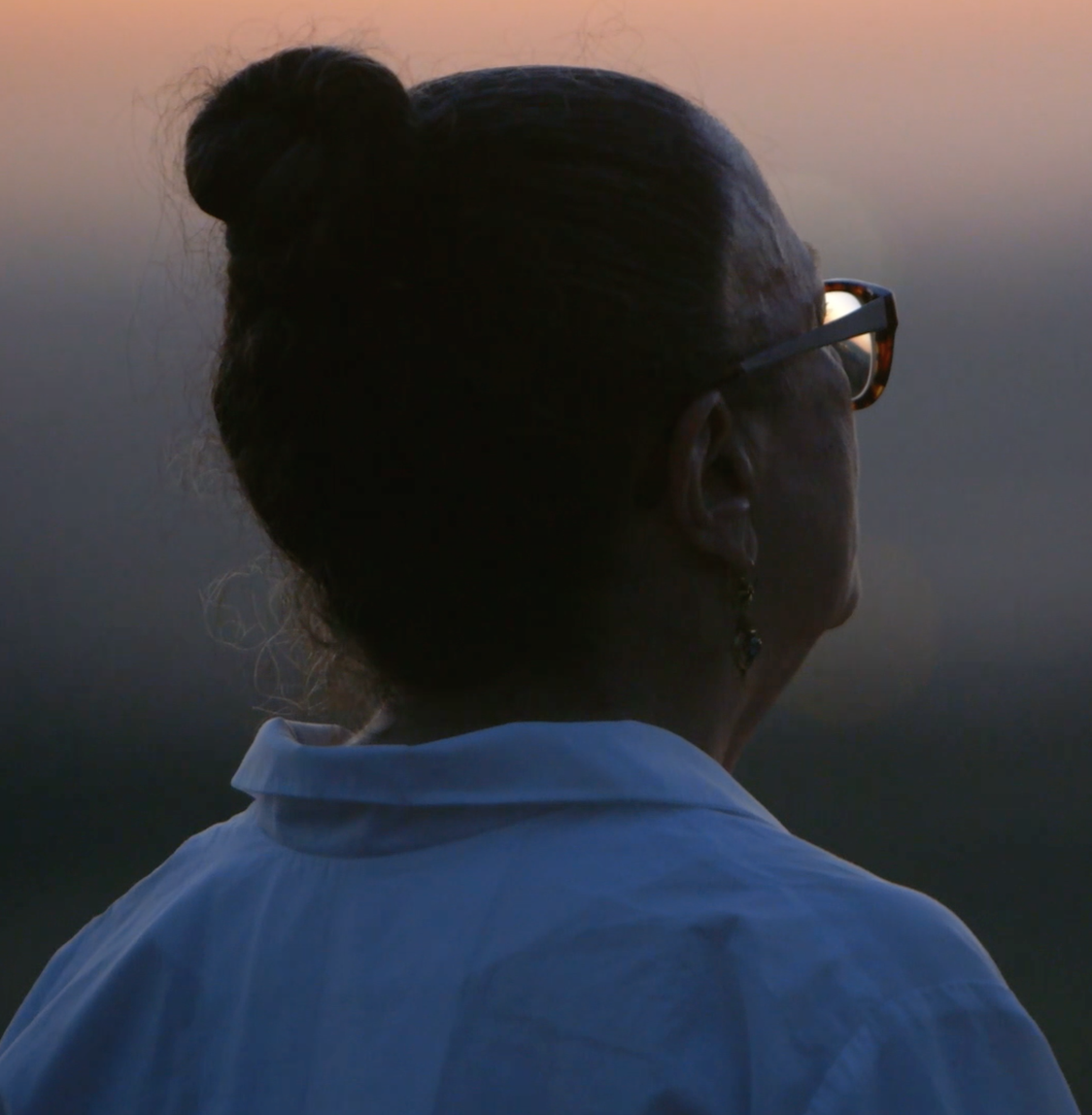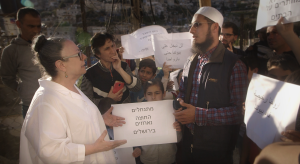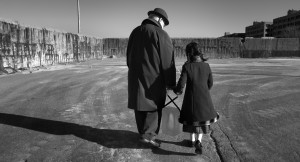
A Filmmaker Listens to Germans, Jews and Palestinians
 “Afterward” is a testament to the power of listening. Unlike many documentaries attempting to tackle the Occupation and issues involving Israel and Palestine, “Afterward” doesn’t project a specific political agenda onto its audience, though the film’s willingness to share voices silenced by the Israeli government— such as Raneen, an advocate for Palestinian refugees, and Basel, a war photographer from Gaza––makes it political.
“Afterward” is a testament to the power of listening. Unlike many documentaries attempting to tackle the Occupation and issues involving Israel and Palestine, “Afterward” doesn’t project a specific political agenda onto its audience, though the film’s willingness to share voices silenced by the Israeli government— such as Raneen, an advocate for Palestinian refugees, and Basel, a war photographer from Gaza––makes it political.
The experience of watching the film imitates Bloch’s experience as the interviewer. The viewer must do the work of sorting through three related but not fully comparable stories of intergenerational trauma. We watch Bloch’s face as she processes what she hears, but we are not told what to think, or who is right. Bloch’s personal connection is represented by pieces of a purposefully vague black-and-white reenactment: a young Bloch holds the hand of her uncle, a Holocaust survivor, as they walk the streets of Jerusalem. This shot is revisited between footage of Bloch walking in Germany, Israel, and the Occupied Territories. Through a combination of intimate, staged interviews and on-the-scene conversations, we hear not just from Ofra, but from those she zooms in to. We listen along with her.
“Afterward” began in Germany, where Bloch researched and interviewed former Nazi sympathizers and non-Jewish Germans willing to speak with her about their connection to the Holocaust. “When I came back from Germany, the film didn’t have an ending—there was no arc,” she says. “I realized that beside the German, there was another group of people I was raised to fear and hate, in my own backyard.” That is how “Afterward” became a movie that invited Palestinian activists to voice their opinion to the world, with no stipulations.
Bloch listens. She gives space for her pain, and their pain. She sits across from an ex-neo-Nazi who organized anti-Semitic actions in East Berlin in the eighties. She sits across from a Palestinian woman who explains why she sometimes believes violent resistance is acceptable. Bloch listens.
 “When I was visiting Germany and Israel/Palestine, my own memories began to surface,” she says. “Once I was in Palestine, I realized the film was also about me—I am the glue that connects all those experiences. It became more personal. I’m not getting into what’s right or wrong, I’m getting into a personal emotional experience.” She notes that it felt impossible to wander the streets of Ramallah without thinking about her time serving in the Israeli army, which coincided with the Six Day War. It felt impossible to speak with a former Nazi sympathizer without thinking of her uncle, who survived the camps. “I ended up realizing that first of all, I can be a victim, and a victimizer,” she said. “And that is a very painful place to be, but owning it is the beginning of a process of reconciliation.”
“When I was visiting Germany and Israel/Palestine, my own memories began to surface,” she says. “Once I was in Palestine, I realized the film was also about me—I am the glue that connects all those experiences. It became more personal. I’m not getting into what’s right or wrong, I’m getting into a personal emotional experience.” She notes that it felt impossible to wander the streets of Ramallah without thinking about her time serving in the Israeli army, which coincided with the Six Day War. It felt impossible to speak with a former Nazi sympathizer without thinking of her uncle, who survived the camps. “I ended up realizing that first of all, I can be a victim, and a victimizer,” she said. “And that is a very painful place to be, but owning it is the beginning of a process of reconciliation.”
Bloch’s political and cultural sensitivity make “Afterward” more than a film about a Jewish woman unpacking her guilt. It’s Bloch’s graciousness, and her evident desire to continue to learn, that encourage the audience to confront reality without feeling pigeonholed, and thus shutting down. Bloch doesn’t place self-indulgent shame at the center; rather, she sets an example of putting one’s ego aside for the sake of connection and growth.
To Bloch, “Afterward” is a step toward filling a void. She feels that, “not enough is being done on the side of Israeli Jews to understand the Palestinian experience and the Nakba.” The “Nakba Law,” passed by the Israeli government in 2011, authorizes the Israeli finance minister to revoke funding from organizations that view May 15th, Israel’s official Independence Day, as a day of mourning: in essence, suppressing even the acknowledgement of Palestinian history and humanity.
“I am not comparing events, I don’t believe in comparing suffering, but I do think that the Holocaust and Nakba shape the collective identity of two people. I would like people to find the space to hear about it, to be more educated,” Bloch told Lilith. The process of creating “Afterward” has helped Bloch own the fact that, despite living in the United States, she is still complicit in the Occupation. She says she hopes that watching the film can encourage others to investigate their roles as well. And with the global rise of fascism, Bloch believes “Afterward” is a film that can speak to an audience beyond just Israeli and American Jews.
We have a lot to learn from Ofra Bloch and her urgent and moving film. That it’s never too late to chase your second dream career. That we need to check where we stand in terms of oppressed versus oppressor. That we need to listen with empathy, and continue to learn and, perhaps, unlearn too.
The views and opinions expressed in this article are the author’s own and do not necessarily reflect those of Lilith Magazine.




